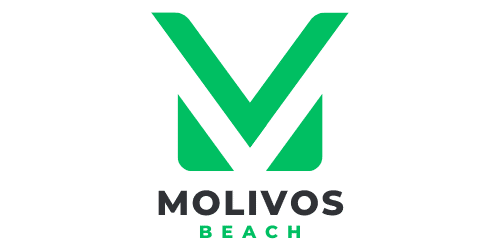How to Start a Community-Based Arts Festival in Your UK Neighborhood?

Are you passionate about the arts? Do you love to create, inspire, and connect with others? If so, a community-based arts festival may be perfect for your UK neighbourhood. This type of event can bring together people from all walks of life, promoting unity, cultural exchange, and artistic creativity. From music to visual arts, the possibilities are endless. In this comprehensive guide, we’ll outline the steps you need to take to make this idea a reality. Let’s embark on this creative journey together, using the power of arts to strengthen our communities.
Planning and Conceptualization
The first step towards making your community-based arts festival a success, is thorough planning and conceptualization. This might seem daunting at first, but take heart. You’re not alone. Your community is brimming with people who share your love for the arts. Engage them, ask for their ideas and help. Brainstorm and strategize together.
A découvrir également : What’s the Latest in Adaptive Clothing for People with Disabilities in the UK?
Identify the purpose of your festival. Is it to showcase local talent? To bring about cultural awareness? To gather support for a local project or cause? Clarifying the festival’s purpose will guide your subsequent decisions. Next, think about the type of arts to be showcased. Will it be a music festival or an arts and crafts event? Or perhaps a combination of both?
Consider your target audience. This will guide your choice of artists, venue, and programming. Don’t forget to consider the logistics – date, time, venue, security, and licensing issues. Remember, the key to a robust plan is in the details.
Dans le meme genre : How Can UK’s Artificial Reefs Enhance Marine Biodiversity?
Gathering Support and Building Partnerships
Once you have a clear plan, the next step is to gather support and build partnerships. This is where your community comes in. Rally your neighbours, friends, and local businesses to support your vision. Community-based events thrive on the active participation of local residents and the goodwill of businesses and organizations within the vicinity.
Start by organizing a meeting with interested parties. Present your plans, discuss potential roles and responsibilities, and listen to their feedback. Remember, these are people who care about the community as much as you do. Their insights can help refine your plans and make your arts festival even more meaningful.
Local businesses can provide financial sponsorships, donations in kind, or services. In return, offer them an opportunity to promote their brand during the event. Consider reaching out to local schools, art clubs, and cultural societies. They may be keen to participate or offer help in various ways.
Seeking Necessary Permissions and Licenses
With your community rallying behind your project, it’s time to secure the necessary permissions and licenses. Depending on your event’s scale and nature, you may need to apply for various permits from the local council. These could range from using public spaces, trading, playing music, and serving food and drink.
Be sure to check the requirements well in advance. Some permits can take weeks or even months to be granted. It’s also prudent to consult a legal expert on contract matters, especially with sponsors and artists. This will ensure that all parties involved are protected, and your festival runs smoothly.
Organizing and Managing the Event
Now comes the exciting part – organizing and managing the festival. If you’ve done your planning well, this stage will be much easier. Start by establishing a clear organizational structure. Define everyone’s roles and responsibilities. Create a detailed schedule of activities, and make sure all participants understand it.
Pay close attention to safety and security. You may need to hire professional services, especially if you’re expecting a large crowd. Likewise, consider how you’ll manage parking, traffic, and waste disposal.
Don’t forget about marketing and promotion. Use traditional and digital platforms to reach your target audience. Engage your community in spreading the word. Remember, the more people you can attract to your festival, the more successful it will be.
Post-Event Evaluation and Future Planning
Once your arts festival has concluded, it’s crucial to conduct a post-event evaluation. Collect feedback from attendees, participants, and sponsors. This will help you understand what went well and where improvements are needed.
Use this feedback to plan for future events. Remember, your first festival is just the beginning. With the continued support of your community, you can create a longstanding tradition that celebrates creativity and unity.
Starting a community-based arts festival is an exciting endeavour. It requires planning, effort, and commitment. Yet, the rewards of seeing your community unite through the arts make it all worthwhile. So why not start planning your festival today?
Marketing and Promotion of Your Event
We are now headed into the world of marketing and promotion. A crucial step in planning your community-based arts festival is getting the word out about your event. Remember, your community event will only be as successful as the number of people it manages to attract. Therefore, it’s essential to create a comprehensive marketing strategy to reach your target audience effectively.
Start by identifying the best platforms to reach your community. Traditional methods like local newspapers, community newsletters, and flyers can be effective. But don’t underestimate the power of digital platforms. Social media can be a game-changer in event marketing. Use platforms like Facebook, Twitter, Instagram, and even LinkedIn to promote your event.
Collaborate with your local people and ask them to share your event on their social media pages. Create engaging content that people can share easily. This could be as simple as a poster with event details or as complex as an animated video. Remember, creativity is key in arts culture.
Create a hashtag for your event on social media. This can build a buzz around your event, and help people find all the information related to your event in one place. Also, consider reaching out to local influencers or bloggers in the arts sector who can help amplify your message.
Don’t forget to utilise your local area resources. Reach out to your local schools, colleges, art clubs, and ask them to share your event details. Additionally, contact Arts Council England or your local council – they often help in promoting community arts events.
Conclusion: Building a Legacy
Congratulations! You’re on your way to creating a vibrant community event that inspires and connects people. As you proceed with your event planning, always remember the bigger picture – you’re not just organising a single event, you’re creating a platform for creative people to express themselves and for the community to come together.
Once your first festival is concluded, don’t forget to gather community feedback. This will provide you with valuable insights for future event ideas and improvements. Remember, the first festival is just the beginning. You’re building an enduring tradition that could turn your neighbourhood into a hub for creativity and culture.
Starting a community-based arts festival is not just about the arts. It’s about bringing people together, fostering a sense of community, and creating a platform for local talent. It’s about transforming public places into vibrant cultural spaces and inspiring people to explore their creativity.
Remember, the success of your festival rests heavily on your community. Engage them, involve them, and above all, celebrate them. After all, a community that creates together, stays together. So, don’t wait any longer. Start planning your community arts festival today and be the change you wish to see in your neighbourhood.
